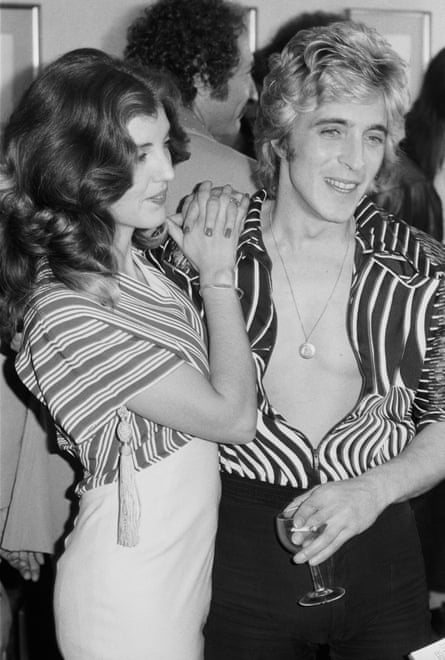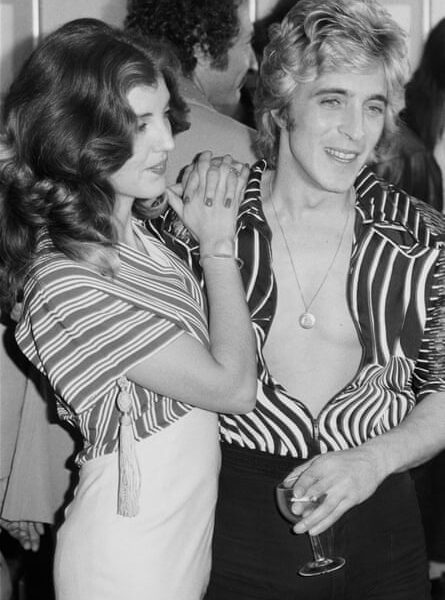A review of “Me and Mr Jones” by Suzi Ronson – Memories of David Bowie’s hairdresser, Stardust.
T
The honest and troubled story in this memoir falls into a specific category, often referred to as “I-was-Sinatra’s-valet”. It shares the experience of an ordinary person who had an encounter with a famous star and experienced a dramatic transformation in their life. In this case, the story follows Suzi Fussey, a 21-year-old hairdresser living with her family in Bromley, London and working at a salon in nearby Beckenham, which is considered a more affluent area. One day in 1970, a customer named Mrs. Jones mentions her son David, who is an artist and performs in a band. The next week, Mrs. Jones brings David’s wife, Angie, to the salon for a haircut, requesting something bold and edgy. Angie is thrilled with the result and invites Suzi to their home to meet David, who is now going by the name David Bowie and is a pale and androgynous young man. Suzi creates a unique red and spiky hairstyle for him, which he loves, and it becomes the iconic look of Ziggy Stardust.
She immediately and permanently becomes infatuated with the couple. Their apartment at Haddon Hall is like a paradise of elegance for her, with luxurious scented candles, foreign magazines, and unique sleeping arrangements. It also serves as an escape from her unhappy home. She avoids the mundane routines of her parents in the suburbs, but we come to realize that they too have experienced glamour and danger during the war. Her father was a tank driver in occupied France and her mother drove pilots to planes at Biggin Hill airport, even winning medals. Upon closer examination, their lives are far from ordinary and take on a poignant depth.
Suzi is equipped with her scissors and tongs as she becomes the hair and makeup attendant for David and his masculine bandmates from Hull- Trevor, Woody, and the handsome guitar prodigy Mick Ronson. Suzi is taken aback by the relaxed environment where open relationships are accepted and men show affection towards each other. She gets nervous when David invites her alone for a night in his bed. While Angie has her own lovers, she is sure to hear about this brief encounter. Suzi worries about her job at Haddon Hall for weeks and fears returning to work as a hairdresser at Evelyn Paget College of Hair and Beauty. However, her concern is relieved when Bowie’s manager Tony Defries offers her £20 per week to travel with David and the Spiders from Mars. This is the highlight of the book- an eyewitness account of Bowie on the brink of superstardom, accelerated by his and Mick’s remarkable performance of Starman on Top of the Pops. On the day Suzi embarks on a shopping spree in the West End at Selfridges, Liberty, and Mr Fish, and ends up in Penge to purchase cat litter and milk for the house, showcasing the significant changes happening in her life.

The enigmatic “David” remains a solitary figure here, fully engrossed in his music but disconnected from those around him. Perhaps this is a necessary component of true genius. Curiously, he never accompanies the band on their travels, as the legendary Starman had a profound fear of flying. As his personal assistant, Suzi has the closest relationship with David – her responsibilities including dying his jockstrap red “on top of Mum’s gas stove,” and pressing the sweat out of his stage attire. However, as the saying goes, no man is a hero to his valet, and the star cannot permanently deceive his devoted PA. While on tour in the US, Suzi’s tasks involve selecting young women from the audience who catch David’s eye, and then calming the irate mother of a 16-year-old girl who was seen sneaking into his bedroom. Furthermore, David’s reputation as an employer leaves much to be desired. His abrupt goodbye to Ziggy at the Hammersmith Odeon in 1973 may have been dramatic, but it earned a sympathetic grimace from Woody and Trevor, who were not informed and now find themselves both jobless and humiliated. (This could possibly be Bowie’s retaliation for their past complaints about money.) Even Mick, hired by David to co-produce Lou Reed’s “Transformer” album (on which he played piano for “Perfect Day”), did not receive any payment or royalties from the gig.
After the breakup of the Spiders and Bowie’s move to LA, the intensity of the story diminishes. Suzi and Mick are now in a relationship, and despite his struggles with gambling and alcohol, she remains devoted to him. Mick, initially a school gardener before being discovered by Bowie, is portrayed as innocent and likeable but not very charismatic. When they travel to New York and attend a club where Dylan is performing, Suzi encourages Mick to introduce himself and he impressively lands a spot on the Rolling Thunder Revue. She wants to join him, but he hesitates, making her feel like a clingy girlfriend. Her peripheral involvement becomes even more difficult when Mick is found with a groupie. The book briefly touches on Dylan, Ian Hunter from Mott the Hoople, and David Cassidy, but these relationships feel like additional content rather than a main focus. The story ultimately ends in 1977, with Suzi now a married mother.
The book “Me and Mr Jones” provides an insightful glimpse into the past. The author’s personal experiences allowed her to navigate the chaos and come out the other side. However, she now faces another challenge as a long-time widow, her partner Mr Jones passed away at the young age of 46 from liver cancer. This is the same illness that took the life of David Bowie on January 10, 2016 – a day that is etched in her memory. As she reflects on this, she wonders if Bowie remembered his dear friend Mick during his struggle with the illness. It comes as a surprise to discover that the author has not seen David or his ex-wife Angie since their last goodbye in Hammersmith. The pain of this loss lingers, as she had believed they were closer than that.
Source: theguardian.com


